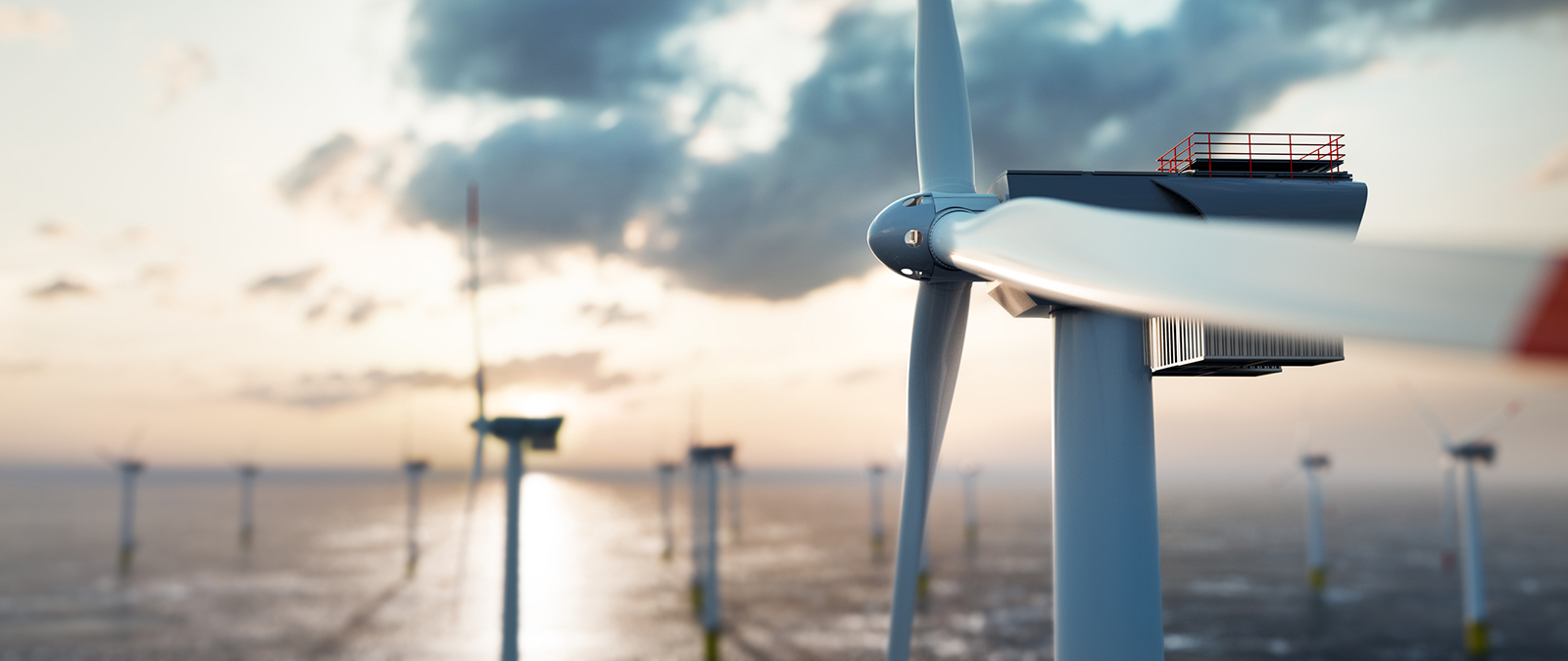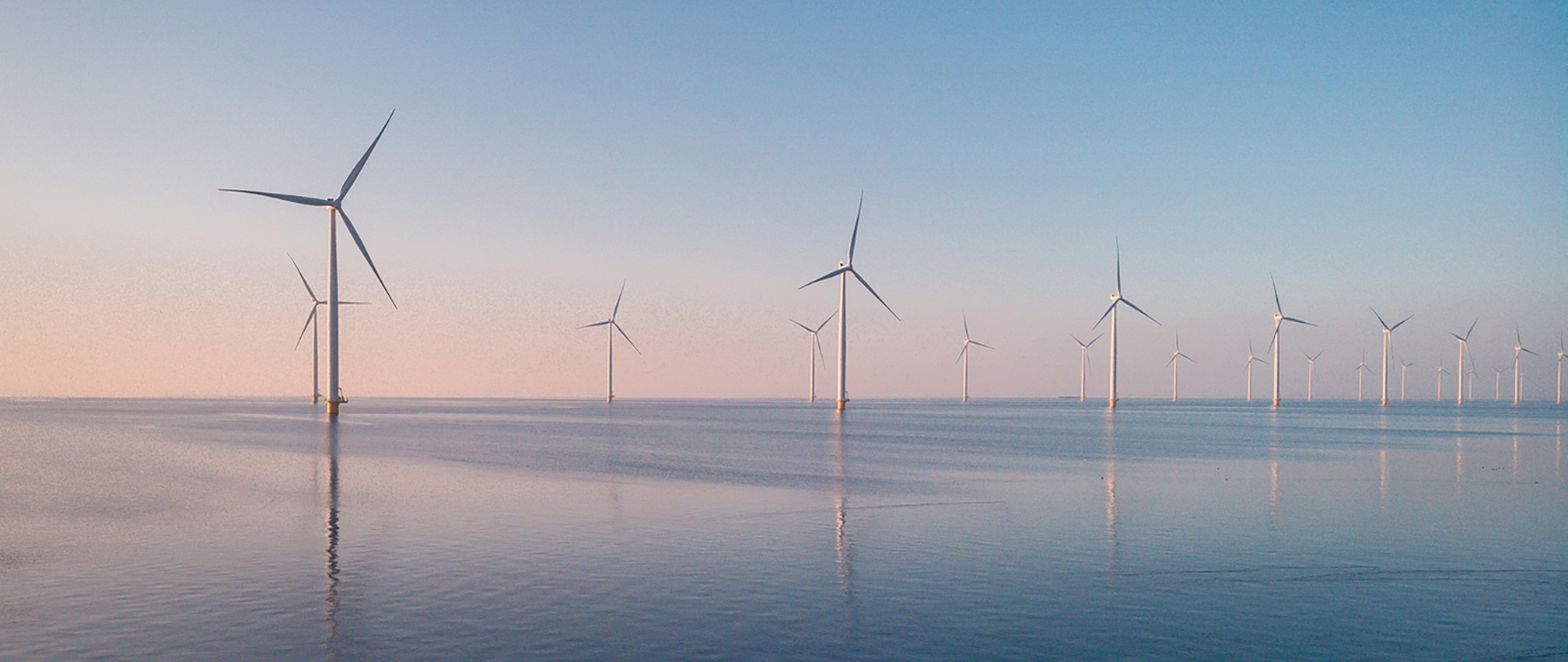Anti-Wind Comments Lack Perspective
May 9, 2024
The first sentence in the head-scratching comment is peak fearmongering. “These are the types of ‘articles’ that drive people to vote for Trump.”
The “article” in question is actually an opinion piece, published April 29 by ecoRI News and written by Rhode Island resident Dominique Browning, the director of Moms Clean Air Force and a vice president of the Environmental Defense Fund.
Browning’s column was about offshore wind and how renewables are the less polluting energy choice for the climate emergency we find ourselves in. It is a well-written look at what has become a controversial issue: offshore wind development.
“We should not be using wind turbines to blow divisiveness through our communities,” Browning wrote.
Shortly after her opinion piece was published, comments appeared and emails were sent, like clockwork.
The commenter who claimed offshore wind turbines would usher in another Trump presidency offered more thoughts.
“There has never been one peer-reviewed study that has shown that OSW [offshore wind] helps with climate change,” she wrote. “If you want to actually learn about the effects of offshore wind on the earth and its inhabitants, ask the fishermen and women who are out there every day. Offshore wind is green colonialism, funded by wind and oil cartels who put profits before people. Make no mistake, this is about money, not altruism.”
I, for one, am thrilled to learn we don’t live in a capitalist society. We should also applaud the selfless efforts of fossil fuel corporations that have eschewed profit for the good of the planet and our health. To do so, we just have to conveniently ignore the fact that in 2023 three of the largest oil and gas producers reported combined profits of $85.6 billion; that CEO pay at the 15 largest U.S.-based fossil fuel companies rose, on average, 4% from 2021 to 2022 while worker pay dipped 1%; CEOs earned 102 times their median worker’s income in 2022, with CEOs making, on average, $17.4 million.
If you want to learn about the effects of fossil fuels on the planet and its inhabitants, take a walk through the Providence neighborhoods of Washington Park and South Providence, home to 25 Shell storage tanks that hold diesel fuel, fuel oil, gasoline, ethanol, and jet fuel, plus all the other fossil fuel infrastructure operated by different companies there; visit Cancer Alley in Louisiana, an area along the Mississippi River where predominantly Black and low-wealth communities live alongside some 200 fossil fuel and petrochemical plants; or take a trip to rural Pennsylvania, where there are 208,778 oil and gas wells that have racked up 57,132 violations since 2008.
Offshore wind turbines and other renewable energy sources are needed to drastically cut our dependence on heavily polluting fossil fuels that are powering the climate crisis.
All forms of energy production, not just offshore wind, come with costs — financial, societal, and environmental. There is no such thing as clean energy. But the burning of oil, methane, propane, coal, diesel, and gasoline are the most polluting and most damaging. Ocean waters are warming and acidifying because of it.
Browning’s column elicited other comments. One commenter seems to have a rather narrow view of National Oceanic and Atmospheric Administration incidental take authorizations. It doesn’t automatically mean marine life is being killed.
In fact, there are three types of authorizations: harassment, injury or disturbance; harassment, injury or disturbance, for multiple years; and serious injury or mortality.
NOAA authorizations are also required for oil and gas development, military exercises, construction, and scientific research projects.
He ends his comment with: “You cannot continue to turn a blind eye and simply ignore what is currently happening. Would you continue to remain silent, or ignore the possibility if this was happening if there was offshore oil or gas exploration or for potential mineral mining operations?”
He apparently is doing just that when it comes to fossil fuels. The first drilling for oil in ocean waters happened in 1896. Since then, offshore drilling has pushed the limits of technology and innovation, with the deepest wells now being drilled in waters nearly a mile deep.
“Oil and gas represents a significant source of energy as well as revenues, but the development of oil and gas resources can pose considerable impacts on marine mammals and marine environments,” according to the Marine Mammal Commission.
Offshore oil and gas development requires conducting geological and geophysical surveys to understand the location and extent of deposits and the geological formations around them. This seafloor exploration includes seismic airgun surveys that can have acoustic impacts on marine species. Seismic testing involves blasting the seafloor with high-powered airguns every 10 seconds and measuring the echoes to map offshore oil and gas reserves.
Another commenter wrote that “I am sure MCAF and I know EDF take wind industry money.” To prove it, he provided a link to a story that fails to mention either Moms Clean Air Force or the Environmental Defense Fund.
Offshore wind energy isn’t perfect — the burning of fossil fuels is nowhere near perfect — and it isn’t the panacea to our energy needs. No such source exists, so we need to invest in less polluting and less damaging power generation even if it will have negative impacts of its own.
Note: Venezuela has lost its last remaining glacier after it shrunk so much that scientists reclassified it as an ice field. It is believed Venezuela is the first country to have lost all its glaciers in modern times.
Frank Carini can be reached at [email protected]. His opinions don’t reflect those of ecoRI News.




Nothing was said about the windmills
reducing the available waters for Commercial fishing thus reducing the availability of domestic fresh fish.
Also Nuclear power is in my opinion a far better choice and can power all our needs.
The comments baffled me to point where I think the article may have been brigaded by an outside group.
I’m glad you addressed many of them though. Whenever I engage with these comments, I always ask for evidence. In return, I either get radio silence or a completely misinterpreted study or biased news piece.
Wind and solar do as much or more damage to the environment as drilling for oil and will never be a viable alternative. Nuclear is the only realistic way to go.
Numerous studies have been made and contrary to what people are trying to say wind power doesn’t decrease fishing opportunities but it has actually made fishing better in the vicinity of these wind towers.
I was floored by The Fisherman’s editor’s log saying “nobody ever talks about offshore substations which chlorinate and heat 10 million gallons of sea water per day and discharge that water back into the ocean, I had to dig deep to find that info, there will be at least 30 of these scattered throughout New England waters.” This would be quite the cover up. After 30 years serving in the U.S Military I would not be surprised.
The resort to conspiracy thinking on the part of a few of those legitimately concerned with the impacts of off shore wind generation on the fishing industry do their cause no good. There is hardly a devious plot to hide the issue. A simple online search with this question “Do offshore wind turbines substations use seawater for cooling?” leads you to plenty of legitimately scientific information about it, beginning with this 2022 summary of the problem: https://www.boem.gov/sites/default/files/documents/renewable-energy/state-activities/HVDC%20Cooling%20Systems%20White%20Paper.pdf